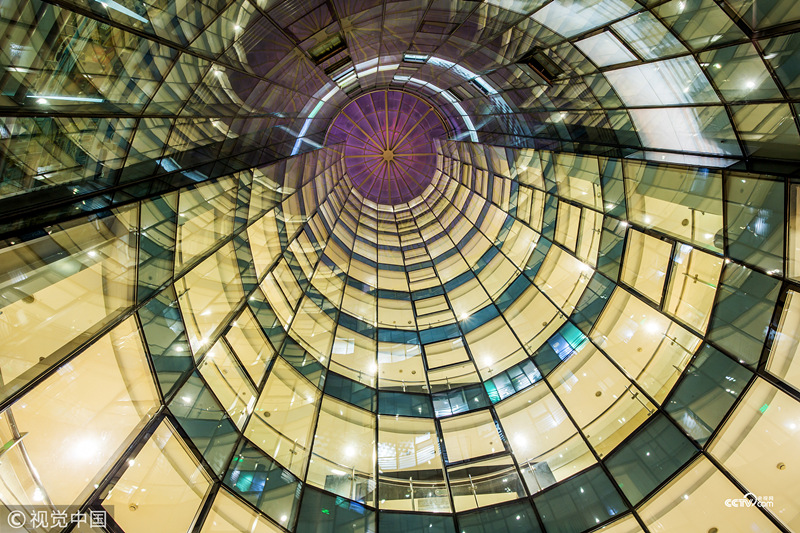Full coverage: China's reform and opening-up, 40 years on
By Tom McGregor, CCTV.com Panview commentator and copyeditor
Editor's note: 2018 marks the 40th anniversary of China's 'reform and opening up' that opened the doors for a more prosperous China that helped hundreds of millions of Chinese citizens escape poverty as the nation had enjoyed rapid economic growth and development. CCTV.com takes a closer look at Beijing's comprehensive reforms with a series of special reports focusing on various fields where tremendous changes have taken place ever since the introduction of the policy.

When the late Chinese leader Deng Xiaopeng had embarked on the reform and opening up policy with a formal declaration at the 3rd Plenary Session of the 11th Central Committee of the Communist Party of China in December 1978, much of the nation was struggling under dire poverty and many Chinese citizens were unfamiliar with world affairs and only a few of them had met foreigners face-to-face.
For many Westerners 40 years ago, China was viewed upon as a Hermit Kingdom rather than a land of opportunity. Yet for China to succeed as a great nation the reform and opening up policy had to welcome foreigners to provide their expertise and investments, foreign direct investments (FDI) in order to rejuvenate the Chinese nation.
Accordingly, Beijing opened its doors to the world at large and encouraged outsiders to visit China, as well as placing priority on allowing young Chinese native students to pursue further studies at schools abroad. The Chinese sought to learn more wisdom and knowledge from those who come from beyond their borders.
The strategy seemed effective and the Chinese Ambassador to the United Kingdom Liu Xiaoming had reflected on the achievements of 40 years of reform and opening by writing a letter to the British media, dated March 27, 2018.
He pointed out that in 1978 China-UK trade stood at US$300 million with only 300 Chinese visitors to Great Britain that year, 100 of them were students. But as of 2017, China-UK trade hit US$80 bn, 4,000 mutual visits daily and 170,000 Chinese students were attending UK schools.
Meanwhile the rapid development of China in the past four decades has set an example of hope for all countries. The world has witnessed over 700 million people rise above poverty levels since the reform and opening up policy had started. In 1978, China was largely rural and rustic, but now it’s the world's 2nd-largest economy, the leading manufacturer and exporter as well.
Rafael Tuju, Secretary-General of the ruling Jubilee Party of Kenya, had granted an interview to Xinhua to explain why many Africans strongly support China as an economic giant. Just 40 years ago, China faced numerous challenges to overcome poverty nationwide, but Beijing succeeded in making so many Chinese much more wealthy along with improved standards of living for all its citizens.
Africa sees China as a shining example of how a nation can be so poor and grow to become so rich. Hence, Africans wish to achieve greater prosperity as well.
"There are problems of disease, problems of infrastructure and problems of poverty. Africa is overloaded with problems," said Tuju. "But if you look at what has been achieved in reform and opening up, it gives us hope that something can be done in our lifetime."
Africa holds huge potential with its young and vibrant population along with its rich reserves of natural resources. Therefore it's understandable that many Africans wish to imitate China's economic model.
On account of China's success, more Chinese are looking to invest all over the world. As of 2017, China received over US$1.7 trillion FDI and invested over US$1.2 trillion overseas. A major driver of Chinese overseas investments is through the Belt & Road Initiative (B&R).
In 2013, Chinese President Xi Jinping introduced the B&R during a speech he gave in Astana, Kazakhstan. It's a bold plan to boost cross-border trade and investment among participating nations in Asia, Africa and Europe by cooperating on building more joint infrastructure projects, such as upgrading shipping ports, constructing new airports and manufacturing and logistics hubs.
The B&R can be considered an extension of China's reform and opening up policy. China has grown more rich and now seeks to forge closer partnerships with other nations in order to achieve a shared prosperity for our world.
Beijing continues to evolve and adapt to changing global economic conditions, while delivering on mutual benefits for all countries hoping to attain deeper economic and diplomatic ties with China.
(The opinions expressed here do not necessarily reflect the opinions of Panview or CCTV.com. )

Panview offers a new window of understanding the world as well as China through the views, opinions, and analysis of experts. We also welcome outside submissions, so feel free to send in your own editorials to "globalopinion@vip.cntv.cn" for consideration.
















